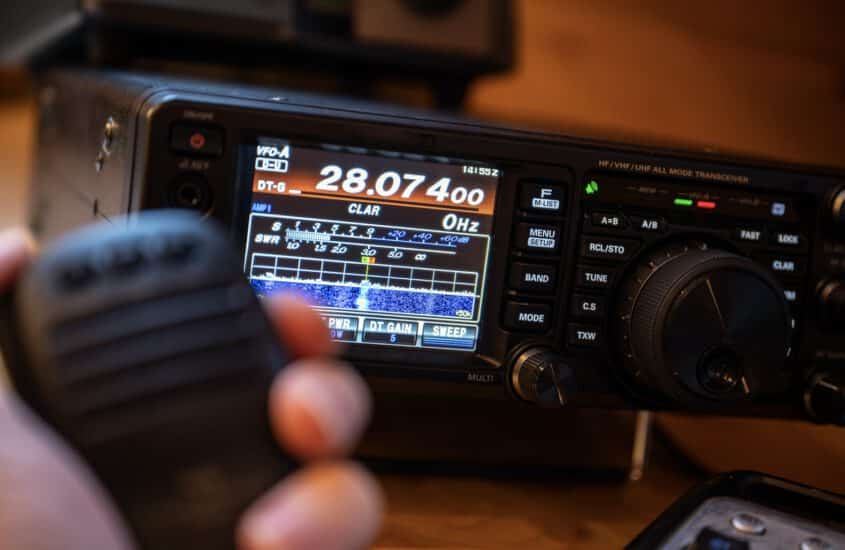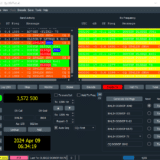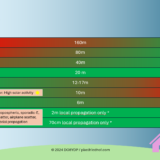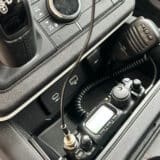How to contest in HAM radio

When I first got in contact with amateur radio contests, I didn’t understand the whole thing. Who can participate? Can I just answer any call? What should be exchanged in the QSO? Here you find the answers.
There is a contest going on. What now?
I remember when I first stumbled upon a contest on 10m one saturday morning that was running in Sout America. I accidentally called a contest station that was calling CQ before and didn’t mention he’s participating in that contest by calling “CQ contest”.
So I called him, got answered, but at the end the station said „Sorry, not in the log“. As the station seemed quite busy and the connection wasn’t the best, I didn’t ask for details and was left with a lot of questions in my head. So I observed the frequency then and I noticed this station was CQing for the contest. I heard other stations giving another number to the CQing station, like „11“.
What’s that number? A region locator, or something I have to obtain somewhere else before?
And anyways, can I participate in that contest at all? Does it make sense to contact the participating stations just for fun, even if I’m not taking the contest too serious but like to get some stations in my own logbook or some QSLs on qrz.com, eqsl.cc or lotw.org? Do the other South American stations get points for a contact with me and am I of benefit for them, or am I just disturbing them?
Well, to be honest, the answers to these questions vary from contest to contest, but let me explain…
Know the contest
There is a great way to find out about any running contest: https://www.contestcalendar.com/
There you can find out about any ongoing or upcoming contests. This site will also provide you with some details like timeframe, frequencies, rules and parts of the exchange. You can also see a link to the contests detailed web pages for further information. In my case, I found the following contest online for what I heard that day on 10m: https://sa10m.com.ar/wp/rules/
Possible parts of the exchange
Each contest is different, so this is just for orientation. Some contests run a progressive serial number after each contact. In some contests it’s the CQ zone added to the 5/9 report. Some contests demand to go by year of birth or the year first licensed. On VHF/UHF contests it’s mainly the exchange of the maidenhead locator grid square because the scoring on those is often based on distance between stations. To find out, check the calendar mentioned above.
How does a contest work?
In most cases, there are two types of stations involved: The national stations and the DX stations from outside the contest region. Both can take part in a contest and both try to make as many contacts with others as possible. In many contests far away DX contacts count more than a short ranged contact to the same country.
Often special callsigns, like maritime mobile or aerospitale mobile stations qualify for extra points.
Can I contact a few stations just for fun?
When I stumbled upon that South American contest, I just wanted to get some cool contacts with South American stations in my own personal logbook and on LoTW, EQSL and QRZ.com. The chances to get a confirmation on these ways is high as most radio amateurs are logging or exporting to one or more of these platforms. But keep in mind, that the other stations are taking the contest much more serious and therefore hope to get your own confirmation not only on the portals above or via direct QSL, but also by the contest itself.
Most contests are organized by clubs and associations and depending on the contest rules, you would have to send in your contest log to these organizations as well. In terms of the individual contest, the exchange between two stations may only qualify for counting, when the exchange is confirmed by both parties. So just keep that in mind and maybe upload your contest related log to the association running the contest. In doing so, you might help the other station to gain more points and so make somebodies day a little brighter.
A few practical tips for contesting
As mentioned before, you would have to send your log to the association running that contest later. Do yourself a favour and do it with a software that will support you in entering and storing the QSO data. If you do it on paper, you would have to digitalize the log first before sending it in. That’s a pain in the ass, so get your logging software up and running before.


